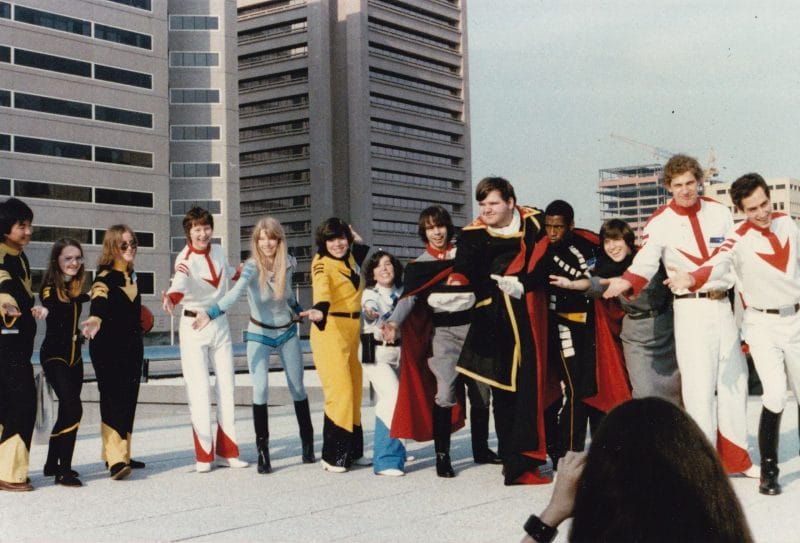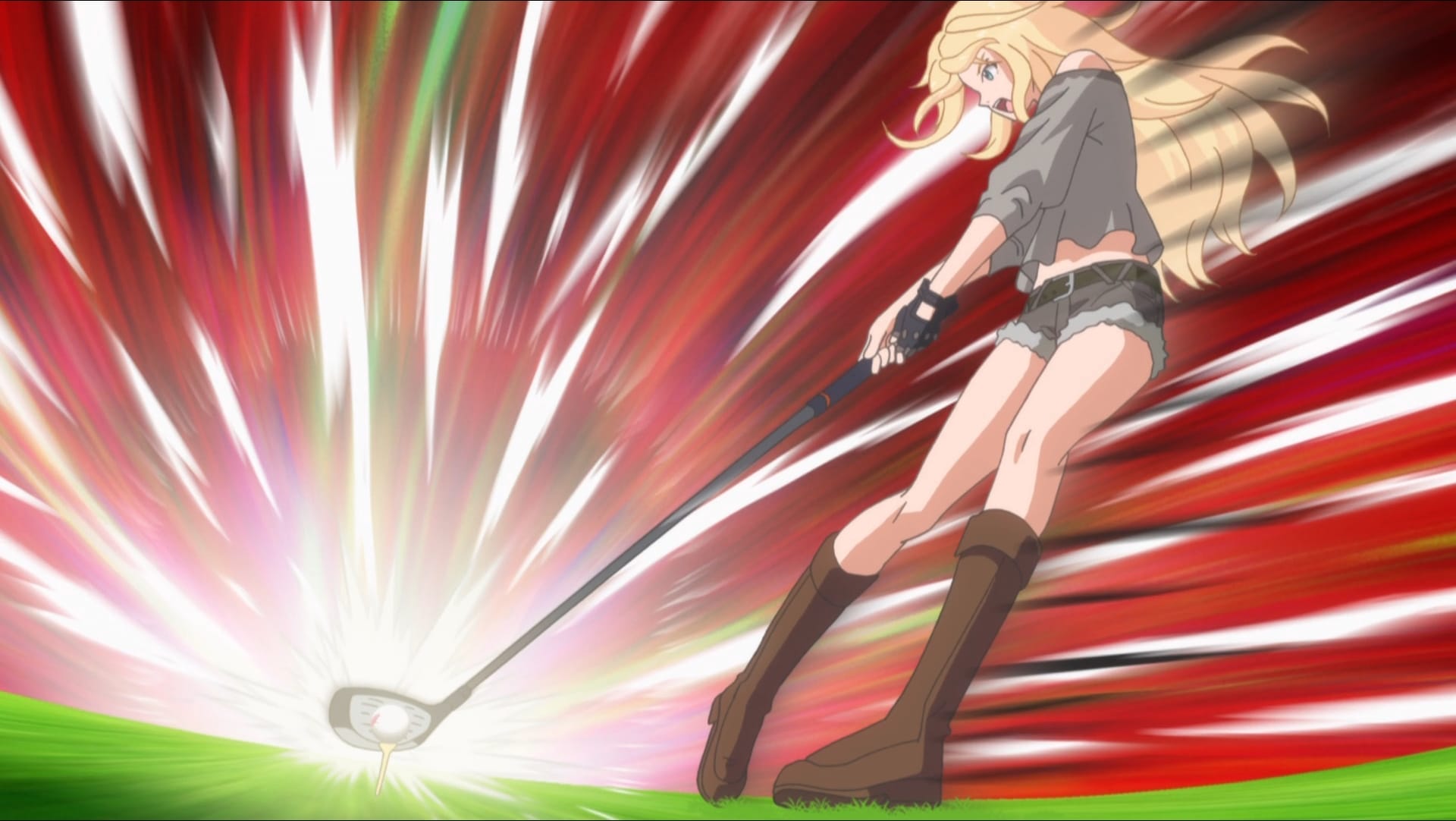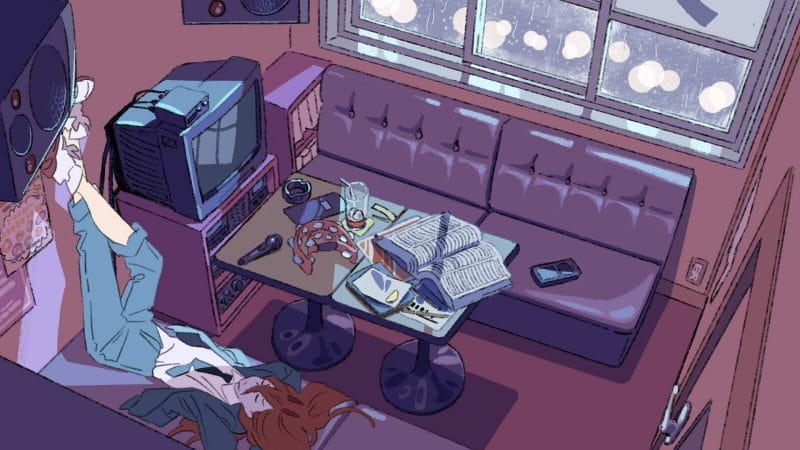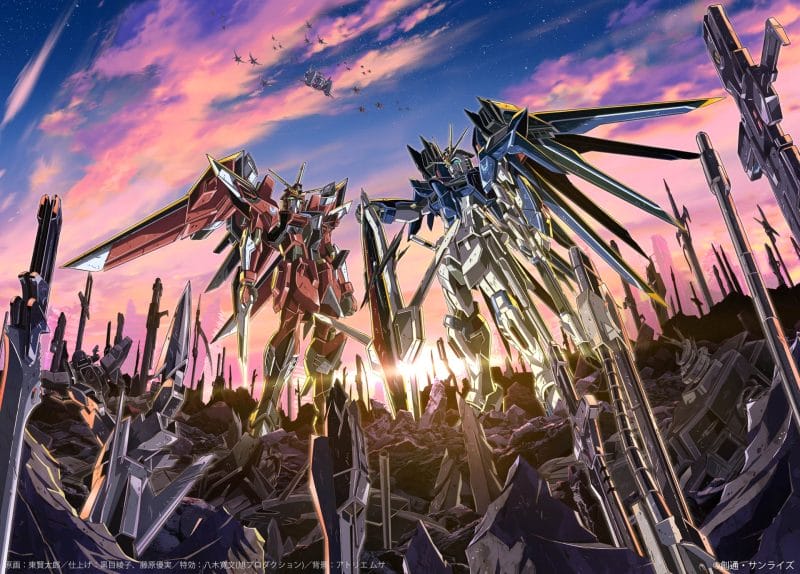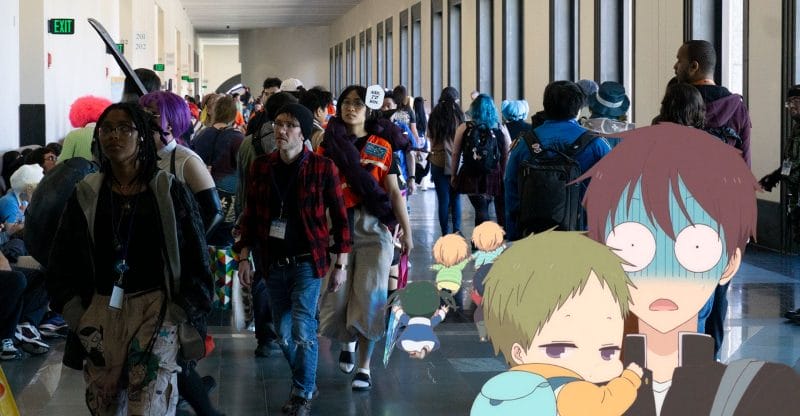Interview With Robert Woodhead
Location: Skype
Interview Date: 1382745600
 In 1988, AnimEigo opened its doors, and helped to introduce the west to the new frontier of Japanese animation. At the time, they were seen as pioneers. Their first release, MAD0X-01, was the first commercial title to hit stores without adhering the burdensome broadcast standards of the west. It was subtitled, it was uncut, and it was different from anything people had seen before. The company created industry standards, including the infamous yellow subtitles that are still used by players in the market today, and they created a lot of recipe card-sized liner notes. AnimEigo brought out titles that are still treated as keepsakes by fans today, including Oh My Goddess!, You’re Under Arrest!, and the perennial cyberpunk classic Bubblegum Crisis. Through their products AnimEigo created a new pool of eager and excited fans, and touched the lives of many through their products.
In 1988, AnimEigo opened its doors, and helped to introduce the west to the new frontier of Japanese animation. At the time, they were seen as pioneers. Their first release, MAD0X-01, was the first commercial title to hit stores without adhering the burdensome broadcast standards of the west. It was subtitled, it was uncut, and it was different from anything people had seen before. The company created industry standards, including the infamous yellow subtitles that are still used by players in the market today, and they created a lot of recipe card-sized liner notes. AnimEigo brought out titles that are still treated as keepsakes by fans today, including Oh My Goddess!, You’re Under Arrest!, and the perennial cyberpunk classic Bubblegum Crisis. Through their products AnimEigo created a new pool of eager and excited fans, and touched the lives of many through their products.
AnimEigo CEO and co-founder Robert Woodhead offers his deepest apologies for that.
On Saturday, Woodhead launched a KickStarter for a remastered Blu-Ray edition of Bubblegum Crisis. With a modest goal of $75,000, Woodhead put forth a vision for a new type of product experience. Rather than set forth with the standard “product plus stretch goals” format most have adopted, every backer will become an active producer in the project. Backers will become key members in the shape of the in the final product, with control over how available funds are spent (minus the Kickstarter fees, licensor royalties, and funding to AnimEigo). That means that extra features, packaging, and more will come under the control of those who made the KickStarter a success. In just over two days, the drive generated over $60,000, and is set to eclipse the goal set by AnimEigo within the near future.
On Saturday evening, we sat down with Mr. Woodhead to discuss the Kickstarter drive, and what it means for fans and AnimEigo alike. I want to thank him for taking the time to chat with us, especially on such short notice!
Note: Edited for clarity
Anime Herald: First off, I’d like to say congrats on the Kickstarter, and congrats for reaching the halfway point within the first 24 hours.
Robert Woodhead: Yeah, it’s very surprising! I thought we might get $10,000 the first day, or something like that. I’m pretty shocked that it went up so fast.
Anime Herald: Absolutely! Out of curiosity, what led you to adopt kickstart as funding the Bubblegum Crisis set?
Robert Woodhead: Well, we certainly could have done it in the traditional manner, but I thought it would be interesting to use the project as a way to explore different methods of releasing anime. There’s always been a ton of titles that I would like to do, but I could never justify economically. And because Kickstarter basically takes the risk out, because you know upfront that you’re going to have enough money to do the project, it’s a way to get around that problem.
We’ve done this sort of in the past with projects like Macross back over ten years ago, where we basically asked people to commit to buying it if we actually released it. And then, when we got enough people, we went and did the project. That worked okay, but there were some risks involved. As it happened, with Macross for example, right about the time that they were ready to actually start taking people’s’ money, 9/11 happened, and the economy, you know, the bubble popped and the economy went down. So that caused us some difficulties.
The other reason we wanted to do it was that I wanted to experiment with giving the actual final consumers of the product a much much bigger say in what they actually get. Doing these kind of projects is a lot of fun, and I thought it might be interesting to see if we could work it out so that everybody who supports the project has an opportunity to actually do something related to the production. Making suggestions, voting on what extra features they’d like, even actually doing part of the actual back-end production work if they’re interested in doing that. And so the Kickstarter is a way to bring together a community of people/ who literally invested in the, they’ve got something invested in the project, and see if it’s cost-effective and useful to basically have them as part of the production team.
Anime Herald: In your pitch video, you mentioned that you’ve been kind of mulling over this idea of including consumers as a part of the process for a while. What led you to really want to do this?
 Robert Woodhead: Because it’s interesting! I’ve been releasing projects for twenty-five years now, and we can do them in our sleep. There’s nothing new and surprising about them. We have the mechanics down-pat. So when you’re in that kind of situation, you kind of want to shake things up. You kind of want to take a step into an area where you’re not quite sure exactly what’s going to happen. I mean, this sort of crowd production idea may turn out to be just, like, an amazing experience and everybody has a lot of fun. Or it may turn out to major pain in the ass. But either way, I’m going to learn something, and I’m going to get to try something that I haven’t had a chance to try before. And for me, what I like to do is do stuff that I think will be fun first, and I figure if I can do that, then the money will take care of itself.
Robert Woodhead: Because it’s interesting! I’ve been releasing projects for twenty-five years now, and we can do them in our sleep. There’s nothing new and surprising about them. We have the mechanics down-pat. So when you’re in that kind of situation, you kind of want to shake things up. You kind of want to take a step into an area where you’re not quite sure exactly what’s going to happen. I mean, this sort of crowd production idea may turn out to be just, like, an amazing experience and everybody has a lot of fun. Or it may turn out to major pain in the ass. But either way, I’m going to learn something, and I’m going to get to try something that I haven’t had a chance to try before. And for me, what I like to do is do stuff that I think will be fun first, and I figure if I can do that, then the money will take care of itself.
Anime Herald: Absolutely! Do what you love, and the money will come, right?
Robert Woodhead: Well, actually, it’s kind of funny! Because every time we license something where the tipping point decision was “Oh yeah! This is going to make us a ton of money!”, it hasn’t! And every time we’ve done something where, you know, “Oh we’ll probably make a buck, maybe if we break even, but damn it! I just want to do this because I know it’s going to be something cool and interesting,” then we’ve ended up doing very well. So I guess there’s a sort of karmic thing going on! (laughs) If my heart if pure, I get to pay lots of taxes!
Anime Herald: Out of curiosity, what types of design decisions will backers be making through the course of the project? Are there any examples that you could possible divulge?
Robert Woodhead: Oh, sure! A lot depends on exactly how much we raise, because that determines what our budget is going to be. If we just barely make our goal, then we know we’ll have enough money to release the things that we’ve promised in the basic set. And there will be decisions to make, like, “which packaging design do you like better?” And, for example, if somebody thinks they’re a great package designer, we’ll give them access to all of the graphics, and they can go wild with it! And if they come up with a package design that basically wins the vote, we’ll use it!
If we get more than our basic goal, then that’s where life gets very interesting! Because then, there will be a lot more room for people to propose things they’d like to do. For example, somebody may decide that they think it’s a great idea if it comes in a much better box, like one of those steelcase type boxes. ANother person might thing “Nonono, we should use some of this extra money to provide Spanish subtitles!” And, sure, there’s just hundreds of things that people might want to consider spending some of that budget on. So what we’re going to do is let people propose them. We’re going to then cost them out, so we get a good idea of how much it would cost for any particular thing that people want to do, and then we’re basically going to do the whole thing like you do when you go to the Apple Store and build your own MacBook! You ca have a bigger hard drive, you can have a faster processor, and if you do this, it’s plus a hundred, if you do this, it’s minus fifty, that kind of thing!
So we’ll give everybody all of the information, and we’ll let everybody sort of prioritize what they think the money should be spent for. And then it’s, basically, it’s like an election, where you run an election to find out what the most popular things are, and then you just go down, see the first thing, top thing on the list. Do we have enough money for it? Okay, it gets done! Second thing on the list, oh, gee, that costs more than we have, so we can’t do that. Third thing, okay we can afford that, it gets done! And we’ll just go down through the list and figure out what the final package is going to contain. And that way, the typical person is going to get more than they would, rather more stuff that they want than if I had imposed my tastes upon them.
Anime Herald: Very cool! Definitely sounds like an interesting model!
Robert Woodhead: Actually, that part of it sort of came out of an experience I had over the last year or so in a game called EVE Online. EVE has this player council called the Council of Stellar Management, which is elected by the players to provide feedback and advice to the developers in Iceland. I’ve been on the Council for the last four years, And so in the most recent elections, we reformed the election system, and we did a lot of research on what makes for a fair election system that maximizes representation. And so, I’m sort of taking what I learned from that experience and applying it in something totally different. By the way, I’m the chairman of the Council of Stellar Management! (laughs)
Anime Herald: Even more awesome! (laughs)
Robert Woodhead: Which means basically everybody thinks I’m awful! (laughs)
 Anime Herald: Comes with the duties, right? (laughs) If the model proves successful, do you feel that it could become a viable regular revenue model going forward? Could we see it become a part of future potential licensing decisions?
Anime Herald: Comes with the duties, right? (laughs) If the model proves successful, do you feel that it could become a viable regular revenue model going forward? Could we see it become a part of future potential licensing decisions?
Robert Woodhead: Oh, absolutely! That’s the whole point! If this works, then we’re going to apply it to what we do in the future. It may be simply seeing whether or not stuff we’ve already done warrants a re-release. Or my personal thing that I want to do is, I want to go looking at stuff from the ’70s and ’80s that I could never commercially release, but I could never fool myself into believing we’d at least break even, and see if this model allows me to actually do those kind of projects.
Anime Herald: Is there a particular title that you’d love to see become another brainchild of this model, something that you’d like to bring though in that success case?
Robert Woodhead: There are, but if I tell you, then another licensor’s probably going to try to go after them! (laughs)
Anime Herald! No worries! (laughs) And do you think that services like Kickstarter and Indiegogo could lead to a larger voice for smaller distributors in the market?
Robert Woodhead: Yeah! And I think just, crowd funding in general, I don’t think it has to be done through particular models like Kickstarter and Indiegogo. There are already groups that are trying out different things. Like Anime Sols, for example, has a different twist on how they’re doing it. And I actually hope that a lot of people try this kind of thing and experiment with different sort of variations on a theme, because I don’t one size fits all on this kind of thing. I think for certain types of projects, the more formal Kickstarter model might be better. For others, the kind of slow accumulation model that Anime Sols is using might be the best solution.
Anime Herald: And, even though this launched just under a day ago, what kind of attention have you received from your initiative?
Robert Woodhead: What kind of attention?
Anime Herald: (affirmative noise)
Robert Woodhead: Well, I”m getting flooded with e-mails, people who are interested in what we’re doing. Not just people who backed the project, but other people who are interested in getting involved. There’s one person, for example, we’re talking to who would like it very much if they could work on getting the subtitles into a different language from the current English and French subtitles. So we’re trying to work out a way that we can sort of add that to the model we currently have in this Kickstarter so that people who would like that particular option can tell us, and so that we can at a certain point guarantee that if enough people tell us that they want that particular option that it’s actually going to happen, that we’ll have the budget for it. And that’s something, I’m still trying to work out the details on that. It’s been a busy 24 hours, but that’s exactly the sort of questions and challenges that I was hoping I would run into when we did this. Which is, out of the blue, somebody comes up with a suggestion that makes me completely rethink how I would do this Kickstarter. And then I’m worried about, like, well, “can I add something to the Kickstarter that lets me achieve that goal?”
Anime Herald: This one’s not directly related to the Kickstarter. But you’re one of the longest-serving figures in the anime industry. And, over the past 25 years, the market’s changed immensely. What do you think the greatest positive change in the industry has been, and what do you feel the biggest negative has been?
Robert Woodhead: Well, clearly, the big positive change is that anime is much more mainstream now. And when we first started AnimEigo, we literally started it as a joke. We literally, when we came up with the idea of actually trying to sell these videos, the response of myself and Roe Adams, the other founder of AnimEigo, was just to laugh our asses off for, like, ten minutes. Til we literally couldn’t, we literally almost suffocated ourselves because this was such a dumb idea. And to see how far it’s come, that’s wonderful! I don’t really have a downside. There are business aspects to it. You know, licenses have gotten more expensive, it’s gotten more risky that constrains some of the projects I’d like to do that I can’t because I can’t justify the risks. Which then feeds back into what we’re doing here, it’s a way to avoid those risks. BUt it’s both a bad and a good thing that the market has become so much bigger, but realistically, I can’t really say it’s a bad thing, because it means it’s kept the thing interesting!
Anime Herald: Absolutely. And I do have just one more question: Is there anything you’d like to say to our readers?
Robert Woodhead: Well, the obvious thing is check out the Kickstarter! (laughs) Yeah, I think that, for me, the coolest thing about this project is not that you’re going to get a great HD version of Bubblegum Crisis. I mean, I could have just released that. that’s not a big thing. The cool thing is that you get to be a part of an ongoing conversation over the next nine or ten months that results in that final product, and that, when you have it in your hands, you’ll be able to say “I had something to do with this!” Yeah, you’ll be able to go to a menu and see your name as one of the supporters. Which, everybody’s name is going to go on this, on the disc. It won’t just be that.
It’ll be that you’ll know it was because of your input, maybe a certain thing got done in a certain way. Or maybe you decided that you wanted to spot-check the subtitles, so I ended up sending you a test disc, and you found a typo in one of the subtitles. You will, forever, whenever you show that video to one of your friends, at a certain point in the video you can call out “There! There! See that subtitle? That would’ve been wrong if it hadn’t been for me!” And, for me, one of the coolest things about being able to do all of the projects we’ve done over the years is that we get to actually do the projects! I mean, they’re a lot of work, and it’s like the old joke of “if you work in a sausage factory, you never want to eat the sausage again.” But on the other hand, the actual process of doing these and the sort of pride you have when the final result comes out is a really cool thing, and I think that a lot of people will enjoy that. Going on into the future, I think you’re going to see much more of people stopping being passive consumers, and starting to become active in the production of the media that they want to consume.





